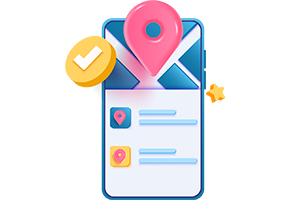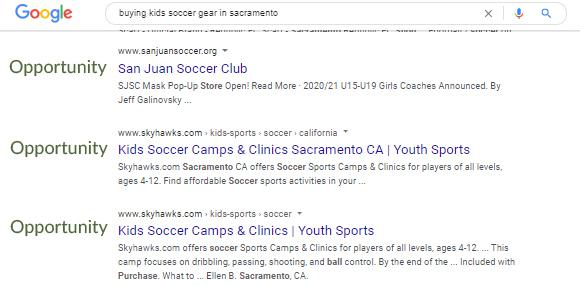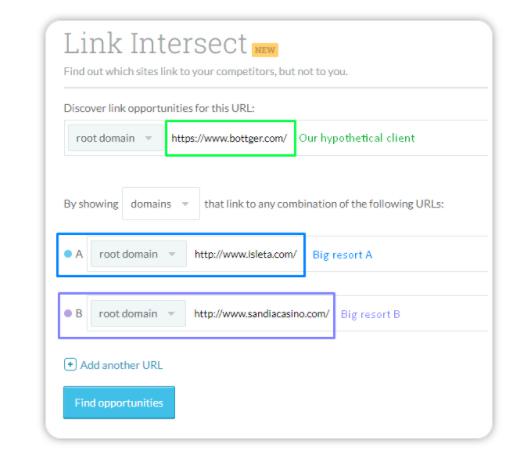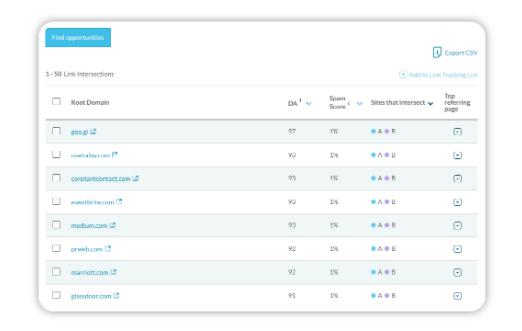While the majority of verticals have mainly the same Google Business Profile features and similar opportunities for building online authority, each industry walks a slightly different path. The hospitality industry, for example, stands out as existing in one of the most unique, nuanced corners of Google’s local business environment. Auto dealerships are another category where special tactics must be used for developing maximum prominence and relevance.
As you’re developing a marketing strategy for building the authority of a particular business, make use of the following resources for specialized local SEO tips for specific verticals:
Automotive
Car dealerships enjoy some fantastic advantages within Google's local environment. Not only can you create a Google Business Profile (GBP) listing for each physical location, but you can also add individual listings for qualifying departments and even separate listings for the specific car makes you sell! Special local search marketing tips for the automotive industry can be found here and here.
B2B
Selling to other businesses is a unique discipline, and when the business model aligns, local SEO can be an incredible asset for building B2B relationships. Learn how to make the right local search marketing moves to connect with other businesses in your area this Moz Blog post.
Financial services
Whether you're marketing a bank, a community credit union, or an accountancy firm, there are often fantastic opportunities to create multiple Google Business Profile listings for individual practitioners or even ATM machines. Read these tips for advice on local search marketing for financial institutions.
Franchise
Effective organization and seamless communication are paramount when marketing franchises, given the many different players involved. Learn how to navigate these complexities to ensure a consistent and powerful local presence across all locations. Read this guide dedicated to local search marketing for franchises.
Healthcare services
From hospital campuses to independent medical providers to dentists, chiropractors, and dozens of other specialties, local SEO for the healthcare industry must typically tackle the complexities of multi-practitioner and multi-department Google Business Profile listings. Read a good intro to local SEO for healthcare companies here, and check out the resource hub at healthcare marketing software provider, PatientPop.
Home services
Tom Waddington’s blog will be your best resource for understanding how Google’s Local Services Ads are increasingly dominating the home services market. But while brands in this vertical will increasingly have to pay to play in Google’s local results, don’t overlook what organic SEO can do for these businesses.
Hospitality
Google treats lodging businesses like completely different animals than the rest of the local ecosystem. This vertical is heavily monetized by Google, and has different Google Business Profile features and odd restrictions. If you’re marketing a hotel, motel, inn, B&B, or other hospitality brand, this guide for hotels will help and check out Acorn Internet Services’s blog for veteran advice.
Legal services
Local SEO for lawyers and attorneys wades into some of the most competitive territory on the Internet. Spam fighting skills are essential here, as is a clear understanding of handling multi-practitioner Google Business Profile listings. The Juris Digital blog is an unusually excellent learning resource dedicated to local SEO for lawyers.
Organization/Non-profit
Educational institutions need to master multi-department Google Business Profile listings management. Other entities, like non-profit organizations, typically spend their time trying to achieve maximum visibility on a budget. Get up to speed with the seven most important focus areas and find a great list of free local SEO tools on the Moz Blog.
Real estate services
The complexities of local SEO for realtors lie in adhering to Google’s guidelines for representing your business to avoid eligibility violations, and managing multi-practitioner listings for all the partners in a firm. Here’s an extensive set of tips specific to real estate local SEO.
Restaurant
Learning to use Google as a source of leads and bookings for restaurants is specialty work. You’ll need to manage online reservations, menu publication, and large volumes of reviews. Read Miriam Ellis’s article on restaurant local SEO to prep yourself for marketing in this diverse and interesting vertical. There’s also this article weighing in-house vs. third-party delivery options, which can have a massive impact on restaurant reputation.
Retail
Retail marketing is diverse, challenging, and full of creative opportunities. Learn how to create stats-based strategy. If you’re marketing a business in the DIY category, like a craft shop, read this helpful article. Also consider whether emerging product kiosks could boost business, and if you’re marketing independent retailers, use every trick in a book to win back their customers from Amazon.
Rural
The less competitive the market, the less marketing that needs to be done to make a local business prominent on the web. Learn to create small, effective local SEO campaigns for rural clients in least-competitive markets using this guide.



